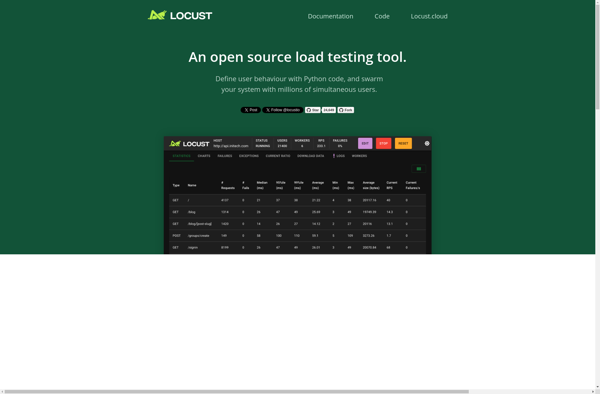Description: Locust is an open source load and performance testing tool written in Python. It allows developers to test the performance of their web applications by simulating large numbers of concurrent users making requests.
Type: Open Source Test Automation Framework
Founded: 2011
Primary Use: Mobile app testing automation
Supported Platforms: iOS, Android, Windows
Description: StormForger is a cloud-based load and performance testing platform for web and mobile apps. It allows users to carry out stress tests, load tests, and geo-distributed tests to ensure apps can handle real-world traffic and remain performant and available under load.
Type: Cloud-based Test Automation Platform
Founded: 2015
Primary Use: Web, mobile, and API testing
Supported Platforms: Web, iOS, Android, API

